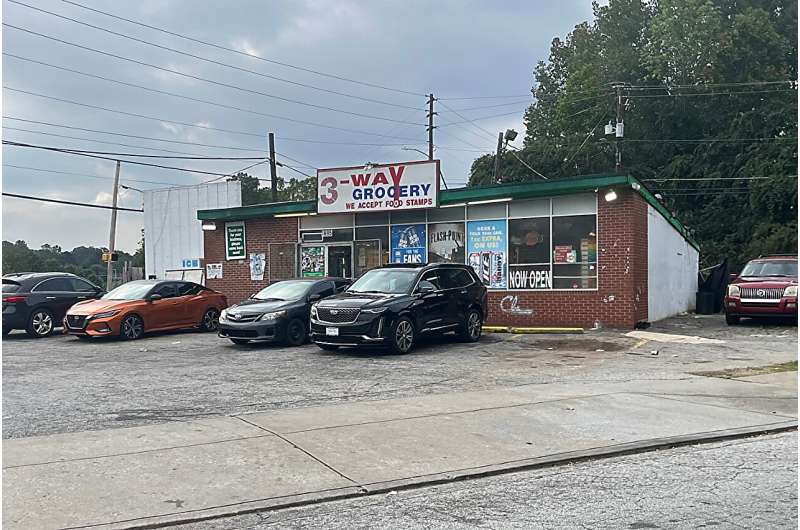
Key findings:
- Small food stores are abundant in Atlanta, with higher concentrations in majority-Black and low-income, low-supermarket-access neighborhoods.
- Less than half (44%) of the 150 randomly selected small food stores in Atlanta offered fresh produce.
- Stark disparities in produce availability existed in majority-Black and low-income neighborhoods.
Why fresh produce access matters
- The Dietary Guidelines for Americans 2020–2025 recommends fresh fruit and vegetable intake as part of a healthy dietary pattern to promote health, reduce the risk of chronic disease, and meet nutrient needs. However, a key barrier to fruit and vegetable intake is having limited access to fresh produce.
- These barriers tend to disproportionately impact low-income neighborhoods and communities of color where fewer grocery stores exist, and convenience stores are abundant.
- The City of Atlanta has recently made substantial progress in expanding fresh food access to meet the goal of ensuring at least 85% of Atlanta residents live within a half-mile of fresh affordable food by 2022. According to the City of Atlanta Fresh Food Access 2020 report, 75% of the city’s residents lived within a half-mile of fresh produce in 2020 compared to 52% in 2015. However, this progress was achieved unevenly across the city, as improved access occurred primarily in neighborhoods with higher proportions of White residents.
What can be done
- Tax incentives: Local and State governments could consider offering tax exemptions or other incentive-based tax structures to independently-and/or minority-owned small food retailers who carry fresh produce and produce distributors capable of supplying corner stores with small orders as well as on-the-go fresh produce snacks that align healthier options with the convenience store business model.
- Require dollar stores to carry fresh fruits and vegetables: This project found that while dollar stores were more prevalent in low-income and majority-Black neighborhoods, none carried fresh produce.
- Update SNAP retailer requirements: The high proportion of the Supplemental Nutrition Assistance Program (SNAP) retailers in Atlanta’s majority-Black neighborhoods that did not carry fresh produce highlights the need for the U.S. Department of Agriculture’s current SNAP program to add a fresh produce requirement.
Source: Read Full Article